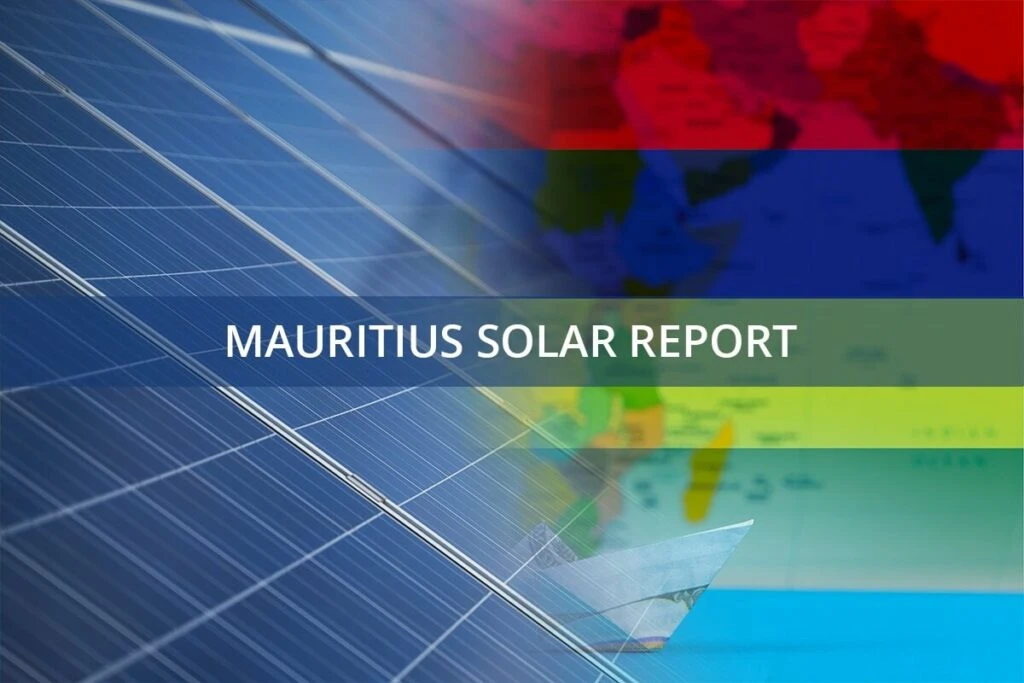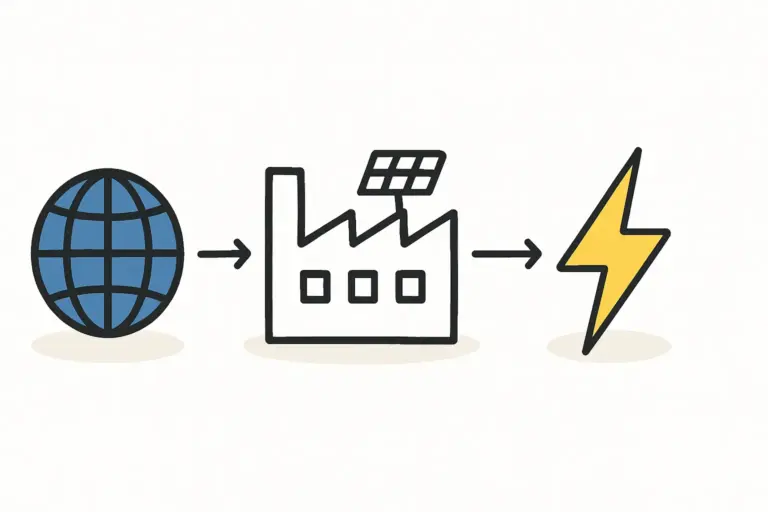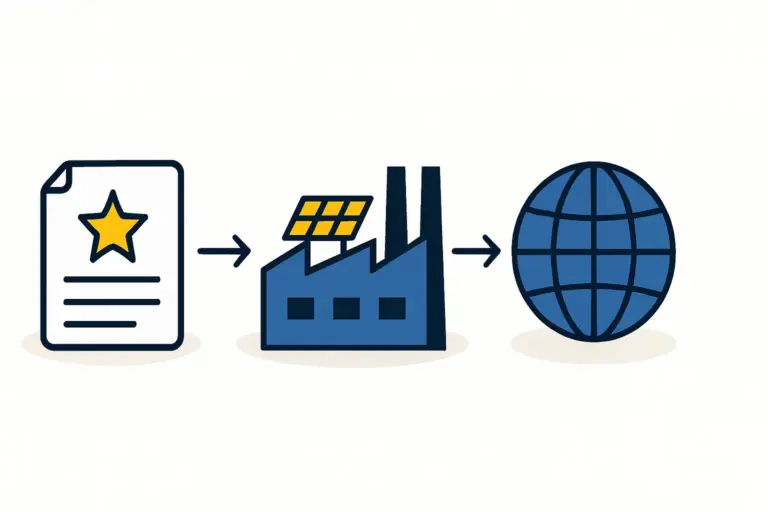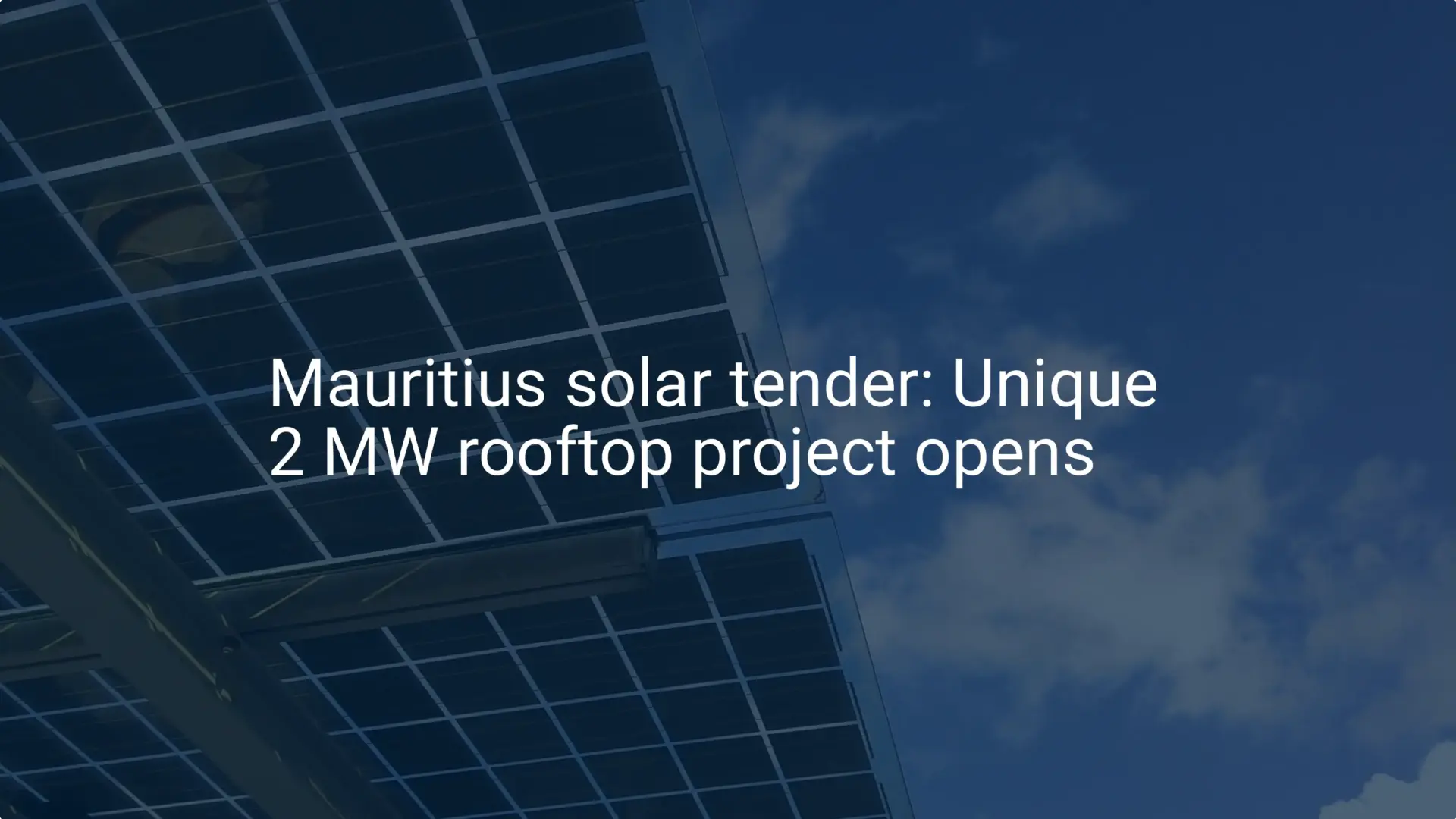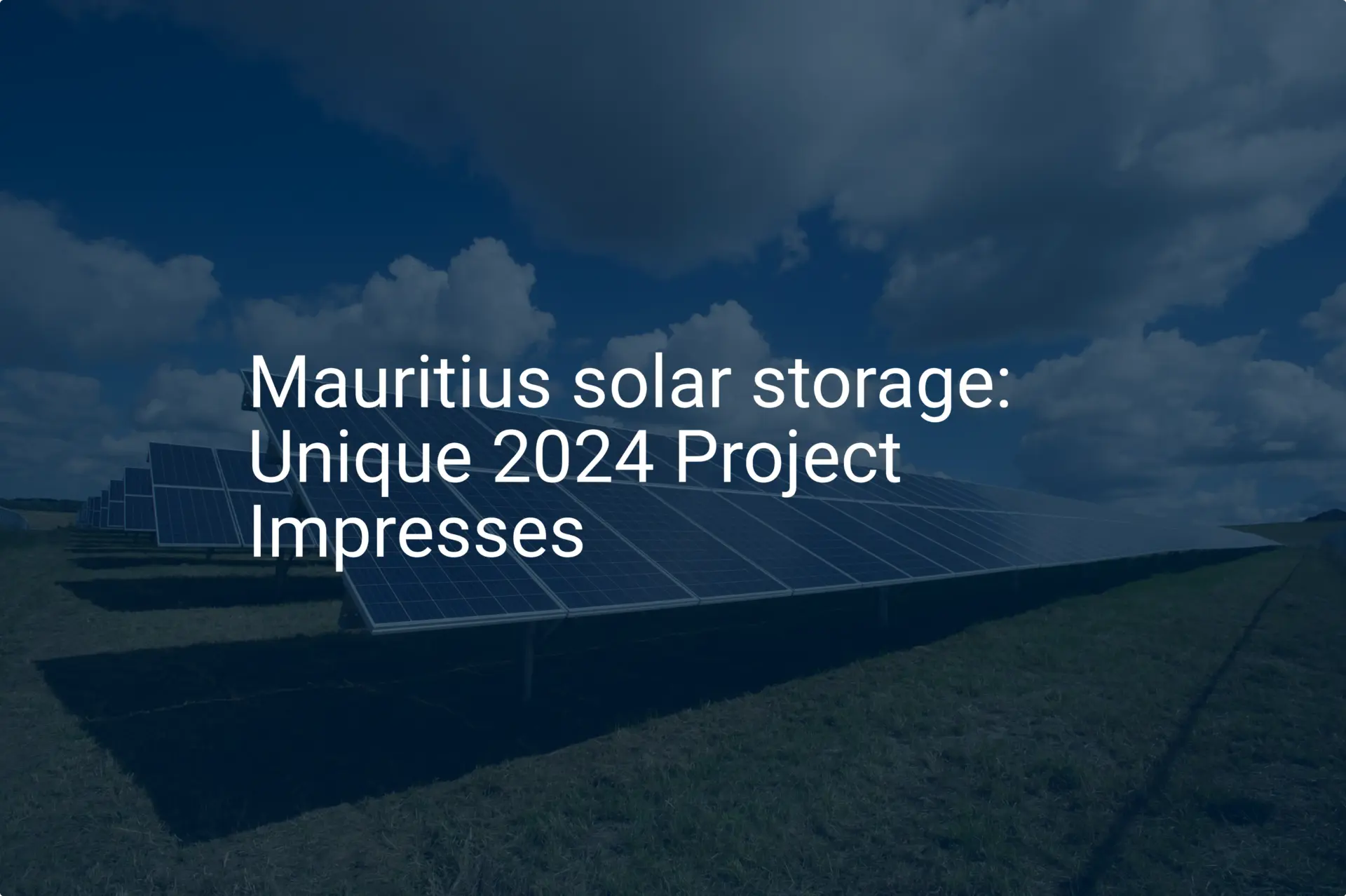While many entrepreneurs entering the solar industry focus on their domestic market, a powerful strategic opportunity lies in establishing a manufacturing base in a third country with preferential access to major global markets. This approach bypasses substantial import tariffs and creates a powerful competitive advantage.
Mauritius, an island nation in the Indian Ocean, is a prime example of this model. It offers a stable, business-friendly environment and unparalleled, duty-free access to both African and European markets. This article explores the strategic business case for establishing a solar module assembly plant in Mauritius, focusing on the powerful trade agreements that make it such a unique export gateway.
Understanding the Strategic Importance of Location
In global manufacturing, location is more than a physical address—it’s a strategic decision that impacts supply chain efficiency, production costs, and, most critically, market access.
High import tariffs can render an otherwise competitive product unprofitable in its target market. A manufacturing hub with duty-free trade agreements eliminates this major cost barrier, creating a direct path to higher profitability and market share.
Mauritius has strategically positioned itself as such a hub. Its political stability, a robust legal framework based on English and French law, and developed infrastructure create a secure environment for investment. But its true power as a manufacturing base is unlocked by its network of international trade agreements.
Key Trade Agreements: The Mauritius Advantage
Mauritius is a signatory to several key trade agreements that grant locally manufactured goods—including solar modules—duty-free and quota-free access to a market of hundreds of millions of consumers.
Southern African Development Community (SADC)
As a member of SADC, Mauritius provides duty-free access to a bloc of 16 member states, including major economies like South Africa, Angola, and Tanzania. For a solar module manufacturer, this means products assembled in Mauritius can be exported to these growing African markets without incurring the usual import duties, making them significantly more competitive against modules imported from other regions.

Common Market for Eastern and Southern Africa (COMESA)
The COMESA agreement extends this advantage further, covering 21 member states from Libya and Egypt in the north to Zimbabwe in the south. The combined SADC and COMESA markets represent a substantial portion of the African continent, where the demand for renewable energy solutions is projected to grow exponentially due to increasing electrification needs and grid instability.
Economic Partnership Agreement (EPA) with the European Union
Perhaps the most significant advantage is the EPA between the EU and several Eastern and Southern African states, including Mauritius. This agreement provides products manufactured in Mauritius with duty-free and quota-free access to all 27 EU member states. The European market is one of the world’s largest and most mature for solar energy, but it is also protected by tariffs on modules from many major manufacturing countries. A production base in Mauritius offers a legitimate, strategic route to bypass these tariffs and serve the high-value EU market directly.

The Critical Role of ‘Rules of Origin’
The benefits of these trade agreements are contingent on meeting specific ‘Rules of Origin’—a critical concept for any prospective manufacturer. To qualify as a ‘Product of Mauritius’ and gain duty-free status, a product cannot simply be trans-shipped through the country; it must undergo ‘sufficient transformation’ within Mauritius.
For solar module manufacturing, this typically means the key value-adding steps of the assembly process must be performed locally. These steps include:
- Cell Stringing and Tabbing: Assembling individual solar cells into strings.
- Layup: Arranging the strings and other materials (glass, EVA, backsheet) for lamination.
- Lamination: Fusing the layers together under heat and pressure to create a durable module.
- Framing and Junction Box Installation: Finishing the module to prepare it for installation.
Establishing a semi-automated or fully automated assembly line to perform these tasks is essential, and this falls squarely within the scope of a standard turnkey solar factory setup. A business that invests in a proper solar panel manufacturing process in Mauritius will therefore inherently meet the criteria for Rules of Origin, unlocking the full potential of its export-focused location.

Practical Considerations for Investors
Beyond trade agreements, Mauritius offers several practical advantages that support a successful manufacturing venture:
- Logistical Hub: Port Louis is a modern, deep-water port, providing efficient sea freight connections to Africa, Europe, and Asia for sourcing raw materials.
- Workforce: The population is bilingual in English and French, which simplifies business operations and communication across both Anglophone and Francophone African markets.
- Investment Climate: The Economic Development Board of Mauritius actively promotes foreign investment and provides support for setting up businesses.
Experience from J.v.G. turnkey projects in similar emerging markets shows that establishing a solar module factory is a structured process. With proper guidance, even entrepreneurs without a deep technical background can navigate the setup successfully. The process should always begin with a detailed feasibility study and a robust solar panel manufacturing business plan.
Frequently Asked Questions (FAQ)
What exactly are ‘Rules of Origin’?
Rules of Origin are the criteria used to determine a product’s national source. In trade agreements, they ensure that only goods genuinely produced or significantly processed within a member country receive preferential tariff treatment.
Is Mauritius a stable country for long-term investment?
Yes. Mauritius is consistently ranked as one of Africa’s most stable democracies and easiest places to do business. It has a diversified economy, a stable political system, and a strong rule of law, making it a low-risk environment for foreign investors.
What size factory is needed to meet these value-add requirements?
The size of the factory (e.g., 25 MW, 50 MW, or 100 MW annual capacity) does not determine eligibility. The key factor is the process. As long as the factory performs the core assembly steps—from cell stringing to final module testing—it will meet the ‘sufficient transformation’ criteria required by the SADC, COMESA, and EPA agreements.
Do I need to be a solar energy expert to start such a venture?
No. Many successful solar manufacturers come from other business sectors. The key is to partner with experienced technical consultants who can guide the project. A comprehensive guide on how to start a solar panel manufacturing plant outlines the necessary steps, from initial planning to full-scale production. pvknowhow.com provides structured e-courses and consultancy to bridge this knowledge gap.
Conclusion: A Calculated Strategy for Global Reach
Establishing a solar module manufacturing facility in Mauritius is less about the local market and more about a sophisticated export strategy. By leveraging the country’s unique combination of political stability, sound infrastructure, and powerful trade agreements, an entrepreneur can build a business that serves two of the world’s most promising solar markets—Africa and Europe—with a significant and sustainable cost advantage. This approach transforms a manufacturing plant from a simple production center into a strategic gateway for international trade.

